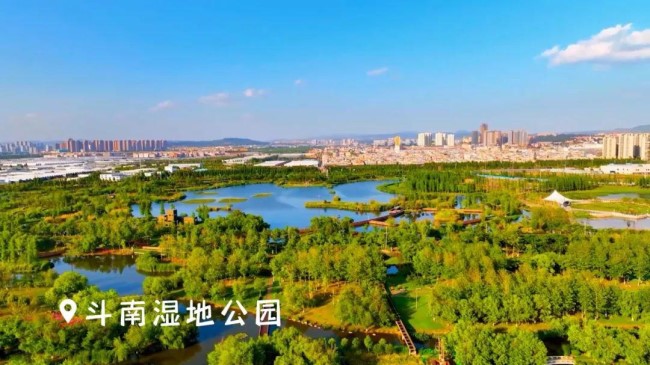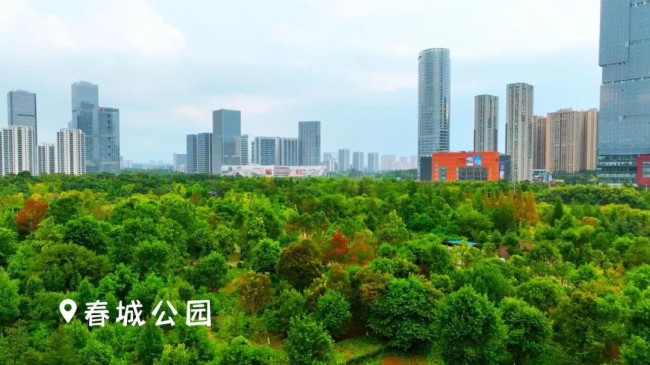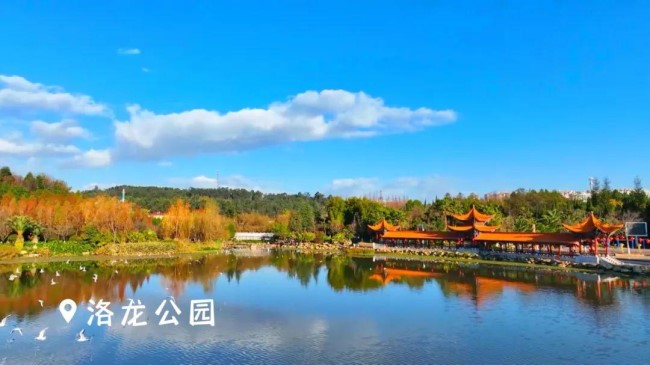Chenggong district in Kunming, Yunnan province, is celebrated for its pristine skies and lush lakeside landscapes.
For years, Chenggong has embraced an urban people-centered development philosophy that prioritizes ecological sustainability. The district has been enriched with water parks, lakeside green belts and expansive parklands.
Today, Chenggong boasts nearly 3,000 hectares of green space and 112 parks, achieving an overall greening rate of 40 percent.

The Dounan Wetland Park in Chenggong district, Kunming, Yunnan province [Photo provided to km.gov.cn]
In 2022, Chenggong was recognized as one of Yunnan Province's first "Green and Beautiful Cities". The following year, it earned the prestigious title of "China Climate Livable City (County)" from the China Meteorological Administration.
In July 2023, the World Landscape Architecture Awards celebrated Chenggong's achievements, honoring the district's water environment improvement and ecological construction projects at Muchun and Panchun lakes in the large-scale construction category.

The Chuncheng Park in Chenggong district, Kunming, Yunnan province [Photo provided to km.gov.cn]
"The park's landscape is beautifully designed, with a lovely environment and walking trails that are especially convenient for us seniors. Plus, its location next to Caiyun South Road makes it easy to get here," said Zhu Huiming, a long-retired resident, as she strolled through Muchun Lake Park arm-in-arm with her husband.

The Luolong Park in Chenggong district, Kunming, Yunnan province [Photo provided to km.gov.cn]
The district has also adopted an innovative approach to waste management. An official from the Wulong residential community in Chenggong said recycled farmland waste is being collected and processed by an Environmental Protection Technology Company. The waste is then converted into useful substances through biodegradation technology, effectively reducing air pollution and promoting resource conservation.
By May of this year, Chenggong district had established nine farmland waste exchange centers. From 2021 to March 2024, a total of 91.29 tons of farmland waste were exchanged, playing a significant role in protecting the surrounding environment.